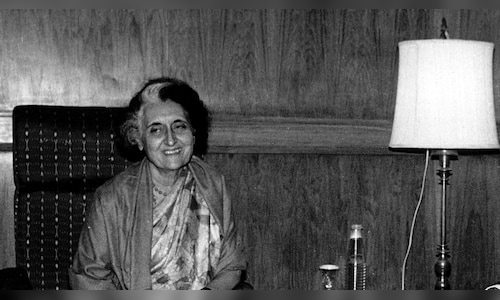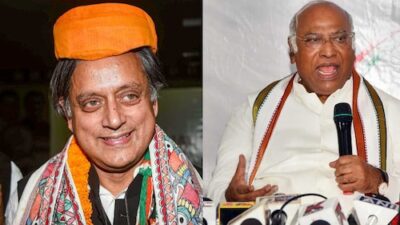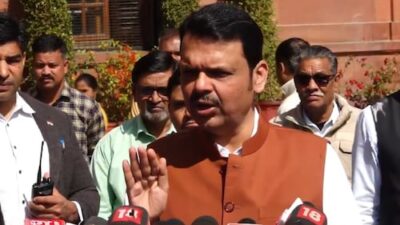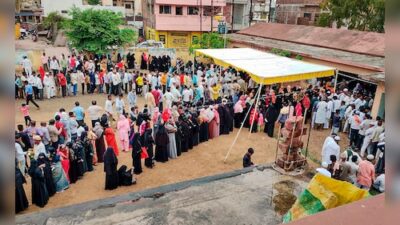The 1975 Emergency marked the third instance of a national emergency, following the initial declaration in 1962 due to the India-China war and the second in 1971 during the Indo-Pakistan conflict.
Preceding Events
The Emergency was triggered by escalating political turmoil and judicial actions that questioned the ruling government’s legitimacy. In the early 1970s, opposition to the government intensified, with notable protests led by Jayaprakash Narayan gaining traction in states like Bihar and Gujarat. Factors such as student unrest, rampant unemployment, inflation, and corruption fueled widespread dissatisfaction.
A significant ruling by Justice Jagmohanlal Sinha on June 12, 1975, determined that Indira Gandhi had abused government resources during her 1971 Lok Sabha electoral campaign. The verdict found her guilty under the Representation of the People Act of 1951 and disqualified her from holding any elected position for six years. Although the Supreme Court temporarily stayed this ruling, it allowed Gandhi to maintain her role as Prime Minister but prohibited her from voting.
Emergency Declaration
On June 25, 1975, then-President Fakhruddin Ali Ahmed announced a state of Emergency under Article 352, citing threats posed by ‘internal disturbance.’ The government claimed that figures such as Jayaprakash Narayan incited discord against the police and military.
The term ‘internal disturbance’ was used initially, which was later amended to ‘armed rebellion’ by the 44th Constitutional Amendment in 1978. This move granted the executive substantial powers, effectively placing state authority under central control. Throughout the 1975 Emergency, civil rights were curtailed, opposition figures were imprisoned, elections were delayed, the press was silenced, and anti-government demonstrations were violently suppressed.
Termination of Emergency
The Emergency continued until March 21, 1977, when political changes arose following general elections. Lok Sabha elections were held from March 16 to 20, 1977, and subsequently, on March 24, 1977, the Janata Party emerged victorious, establishing a new government after defeating the Congress Party.
50 Years Since the Emergency: Leaders’ Perspectives
On the 50th anniversary, Prime Minister Narendra Modi strongly criticized the Congress government for eroding democratic institutions and curtailing fundamental rights. Describing it as one of the darkest periods, PM Modi, through a series of posts, honored those who opposed the Emergency.
“Today marks 50 years since one of the darkest chapters in India’s democratic history, the imposition of the Emergency. The people of India observe this day as Samvidhan Hatya Diwas. No Indian will forget how the spirit of our Constitution was violated, the voice of Parliament silenced, and attempts were made to control the judiciary. We pay tribute to every individual who stood unwaveringly against the Emergency!”
Today marks fifty years since one of the darkest chapters in India’s democratic history, the imposition of the Emergency. The people of India mark this day as Samvidhan Hatya Diwas. On this day, the values enshrined in the Indian Constitution were set aside, fundamental rights…
— Narendra Modi (@narendramodi) June 25, 2025
Reflecting on this ‘painful chapter’ of India’s post-independence history, External Affairs Minister S. Jaishankar remarked it serves as a crucial reminder of the collective responsibility to safeguard democratic values and uphold the resilience of Indian democracy.
“On #SamvidhaanHatyaDiwas, we reflect on a painful chapter of independent India’s history, when institutions were compromised, rights were suspended, and accountability was disregarded. It serves as a solemn reminder of our collective duty to protect constitutional values and uphold the resilience of our democracy.”
On #SamvidhaanHatyaDiwas, we recall a painful chapter of independent India’s history, when institutions were undermined, rights were suspended and accountability was set aside.
It also remains a powerful reminder of our collective duty to safeguard constitutional values and…— Dr. S. Jaishankar (@DrSJaishankar) June 25, 2025
Union Home Minister Amit Shah claimed that the Emergency represented not a necessity, but an embodiment of the Congress’s anti-democratic mindset, driven by ‘one individual.’
“The ‘Emergency’ was an ‘era of injustice’ fueled by Congress’s thirst for power. The declaration of Emergency on June 25, 1975, inflicted profound suffering upon the citizens. To ensure that younger generations comprehend this, the Modi administration has designated this day as ‘Constitution Assassination Day,’ reminding us that the people can uproot dictatorship when power morphs into tyranny,” he added.
‘आपातकाल’ कांग्रेस की सत्ता की भूख का ‘अन्यायकाल’ था। 25 जून 1975 को लगे आपातकाल में देशवासियों ने जो पीड़ा और यातना सही, उसे नई पीढ़ी जान सके, इसी उद्देश्य से मोदी सरकार ने इस दिन को ‘संविधान हत्या दिवस’ का नाम दिया। यह दिवस बताता है कि जब सत्ता तानाशाही बन जाती है, तो जनता उसे… pic.twitter.com/UdGRzNCcgw
— Amit Shah (@AmitShah) June 25, 2025
On Wednesday, Union Finance Minister Nirmala Sitharaman stated that the Emergency arose from a blend of weaponized laws, subversion of judicial independence, and a blatant disregard for the rule of law. On X, she expressed, “For members of @INCIndia holding a copy of our Constitution—50 years later, India remembers the atrocity.”
Emergency ”…happened due to a combination of weaponisation of laws,subversion of judicial independence,and disregard of the rule of law.”
For those in @INCIndia with a copy of our Constitution in their hands—50 yrs on India remembers the atrocity. https://t.co/7aqU1Lkban
— Nirmala Sitharaman (@nsitharaman) June 25, 2025
On the 50th anniversary of the Emergency, Union Minister Piyush Goyal declared it a blatant attempt to ‘crush’ the country’s ‘soul.’ “On June 25, 1975, a conspiracy by a family, intoxicated by power, sought to trample the Constitution, showcasing the Congress’s cruel, tyrannical mindset that subjected the entire nation to the horrific Emergency, obliterating democracy. This was a direct assault on the essence of our nation. The Emergency is such a grave crime from a humanitarian perspective that it can never be forgiven,” he stated on X.
25 जून 1975…
एक परिवार द्वारा सत्ता के नशे में संविधान को रौंदने की साजिश और कांग्रेस की क्रूर, अत्याचारी सोच का प्रमाण जिसने पूरे देश को घिनौने आपातकाल के हवाले कर लोकतंत्र की हत्या कर दी।यह हमारे राष्ट्र की आत्मा को कुचलने का सीधा प्रयास था। आपातकाल मानवीय दृष्टिकोण से एक… pic.twitter.com/6LZjzKsH1G
— Piyush Goyal (@PiyushGoyal) June 25, 2025
Government Declares June 25 as ‘Samvidhaan Hatya Diwas’
In 2024, the BJP-led administration officially recognized June 25 as Samvidhan Hatya Diwas to commemorate the Emergency’s imposition.
In a post on X, Amit Shah shared the notification stating, “A proclamation of Emergency was made on 25th June 1975, leading to gross abuses of power by the government of the time, exposing the people of India to numerous excesses and atrocities.”
25 जून 1975 को तत्कालीन प्रधानमंत्री इंदिरा गाँधी ने अपनी तानाशाही मानसिकता को दर्शाते हुए देश में आपातकाल लगाकर भारतीय लोकतंत्र की आत्मा का गला घोंट दिया था। लाखों लोगों को अकारण जेल में डाल दिया गया और मीडिया की आवाज को दबा दिया गया। भारत सरकार ने हर साल 25 जून को ‘संविधान… pic.twitter.com/KQ9wpIfUTg
— Amit Shah (@AmitShah) July 12, 2024
Alongside the formal notification, he mentioned, “The Government of India has resolved to observe June 25 each year as ‘Constitution Assassination Day.’ This day will honor the immense sacrifices of all who suffered through the inhuman experiences of the 1975 Emergency.”



